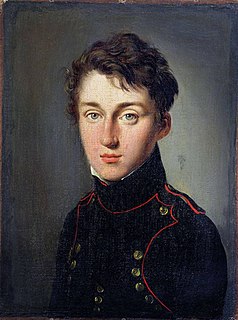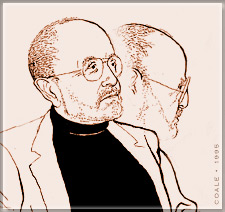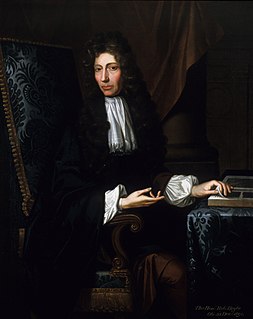A Quote by James Clerk Maxwell
So many of the properties of matter, especially when in the gaseous form, can be deduced from the hypothesis that their minute parts are in rapid motion, the velocity increasing with the temperature, that the precise nature of this motion becomes a subject of rational curiosity. Daniel Bernoulli, Herapath, Joule, Kronig, Clausius, &c., have shewn that the relations between pressure, temperature and density in a perfect gas can be explained by supposing the particles move with uniform velocity in straight lines, striking against the sides of the containing vessel and thus producing pressure.
Quote Topics
Against
Becomes
Between
Containing
Curiosity
Daniel
Density
Explained
Form
Gas
Hypothesis
Increasing
Lines
Many
Matter
Minute
Motion
Move
Nature
Particles
Parts
Perfect
Precise
Pressure
Producing
Properties
Properties Of Matter
Rapid
Rational
Relations
Sides
Straight
Straight Line
Straight Lines
Striking
Subject
Supposing
Temperature
Thus
Uniform
Velocity
Vessel
Related Quotes
It is seen that both matter and radiation possess a remarkable duality of character, as they sometimes exhibit the properties of waves, at other times those of particles. Now, it is obvious that a thing cannot be a form of wave motion and composed of particles at the same time - the two concepts are too different.
For the elements have the property of moving back to their place in a straight line, but they have no properties which would cause them to remain where they are, or to move otherwise than in a straight line. The rectilinear motions of these four elements when returning to their original place are of two kinds, either centrifugal, viz., the motion of the air and the fire; or centripedal, viz., the motion of the earth, and the water; and when the elements have reached their original place, they remain at rest.
But the World being once fram'd, and the course of Nature establish'd, the Naturalist, (except in some few cases, where God, or Incorporeal Agents interpose), has recourse to the first Cause but for its general and ordinary Support and Influence, whereby it preserves Matter and Motion from Annihilation or Desition; and in explicating particular phenomena, considers onely the Size, Shape, Motion, (or want of it) Texture, and the resulting Qualities and Attributes of the small particles of Matter.
Nature prefers the more probable states to the less probable because in nature processes take place in the direction of greater probability. Heat goes from a body at higher temperature to a body at lower temperature because the state of equal temperature distribution is more probable than a state of unequal temperature distribution.

































